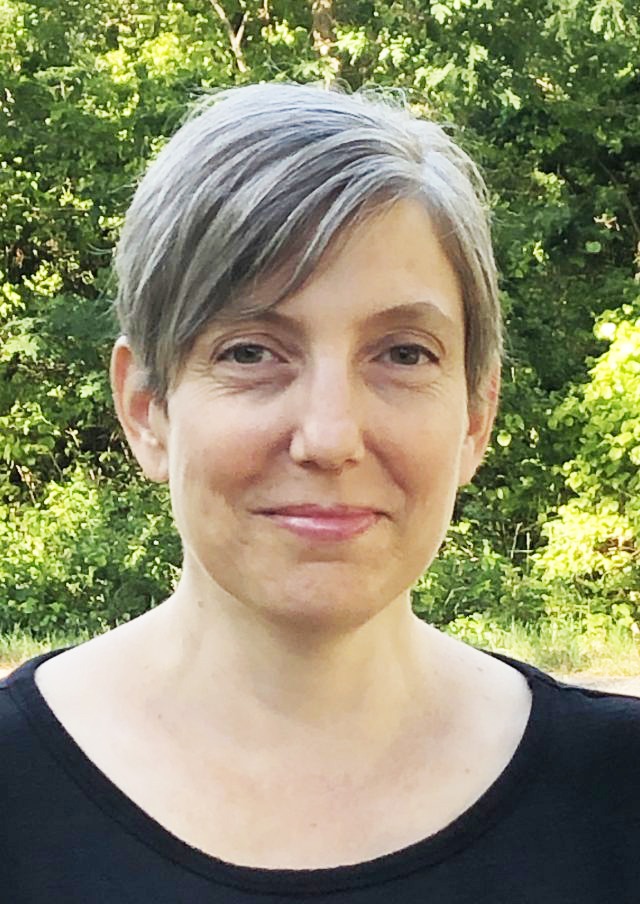
Not all theater professors are the same. Some only teach while others live in the world that they convey to others: playwriting, directing, and inspiring people through their work.
Anne-Marie Cammarato is the latter. In addition to teaching at both Temple University and the University of Delaware, the Italian-American playwright is an award-winning director and the first recipient of The Emerging Women’s Playwriting Residency at the University of Mississippi.
This is the inaugural year of the residency that gives female playwrights three weeks to develop theatrical work that will be shared with the Oxford community.
Despite her current success, Cammarato wasn’t always interested in theater. From the age of 7, Cammarato took ballet classes while attending the North Carolina School of the Arts.
“While I was there I spent a lot of time with the kids in the drama department, which sparked my intrigue in storytelling, and I’ve always enjoyed writing,” Cammarato said.
She added that after she quit ballet at 17, working in the dramatic arts seemed like the right thing to do.
“I think when I decided that I didn’t wanted to be a dancer anymore, theatre felt like a natural direction to go in,” Cammarato said.
When she was younger, Cammarato worked on plays and musicals throughout her high school years and well into college. Her experience with ballet allowed her to recognize parallels between dance and theater.
“I think that the great thing about theater is that it kind of combines the performance aspect of dance with literature, and that was really interesting to me,” Cammarato said.
Although this will mark her first visit to Oxford, Cammarato is no stranger to the South. The visiting professor was born in Kentucky and has visited the Magnolia State in the past.
During her residency, Cammarato will be working on a play called “Hazel,” a story set in the near future following a family living with the consequences of climate change.
“I’m sort of intrigued by the whole idea of denial, and how denial is playing such a huge part of our lives right now both politically and in other matters, like climate change,” Cammarato said.
The Delaware-based playwright said she wants to highlight how humans convince themselves to believe something and stand behind it, whether it’s true or not, as well as the dangerous consequences that may follow.
However, Cammarato is not trying to make a political statement; she’s interested in bringing up contemporary issues that are on everybody’s mind while pushing the boundaries of the art form.
“In theater, because it’s a live art form and because theater is so expensive, we don’t want to portray a lot of the things we could on film, like weather,” Cammarato said. “So, I’m kind of asking, ‘Can we put a storm on stage and what effects does that have?’”
This residency is one of a kind, allowing playwrights to do what they do best while getting away from the distractions of everyday life.
“For me, it’s about having the time and space to work on my play, maybe generate some new play ideas and do it in a place that is unfamiliar,” Cammarato said.
Another unique aspect of this program is that it will allow Cammarato to form an ongoing relationship with students.
“It’s more than just the three weeks that I’ll be here to write,” Cammarato said. “I’ll also be coming back and having sort of a year-long relationship with students and the community regarding this play.”
The residency is a collaboration between the UM Department of Theatre and Film, the Sarah Isom Center for Women and Gender Studies and the Yoknapatawpha Arts Council.
“We were all looking to host residents and thought that it would be a stronger program if we did collaborate, so we all are trying to have some mutual goals achieved through this residency,” said Wayne Andrews, director of the Yoknapatawpha Arts Council.
Andrews added that one of the main goals of the Yoknapatawpha Arts Council is to bring new voices to Oxford, showcasing the unique artistic talent and history that Mississippi has to offer.
“The arts council seeks to expand access and quality of arts in the community, while creating opportunities for creative voices within the community,” Andrews said.
Andrews hopes that by bringing in new talent, it would lead to better opportunities for residents to have a unique experience, while creating new opportunities for those who are creating new works.
“We want our people to stay in the state, but to have reached beyond the state, and the arts and culture do that quicker, better and with more economic impact than any other industry we have,” Andrews said.
Another purpose of the residency is to bridge the opportunity gap that may hinder many female playwrights that has led them to become underrepresented in the film and theater industry.
Cammarato believes that although there is more awareness today, emerging female playwrights should be more visible.
“I think that it’s getting better, but my hope is that we get to a place of parity, where someone who subscribes to their local theater in this country, buys a season of tickets and sees women’s stories and stories written by women as often as they see stories written by men,” Cammarato said.


























